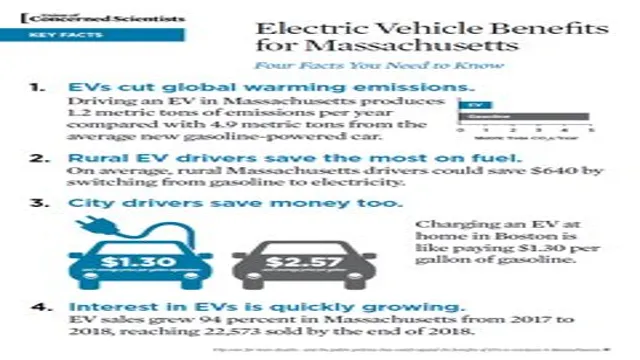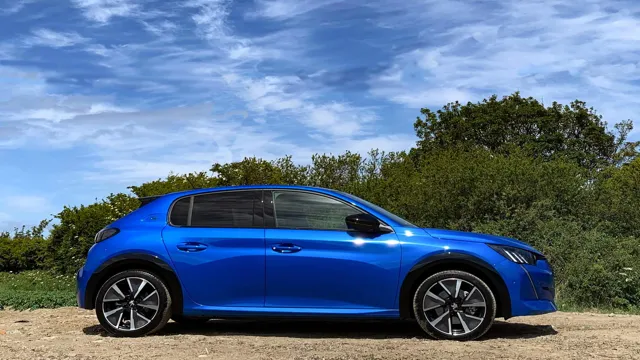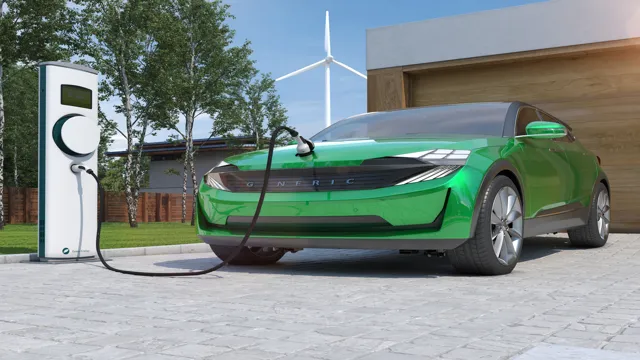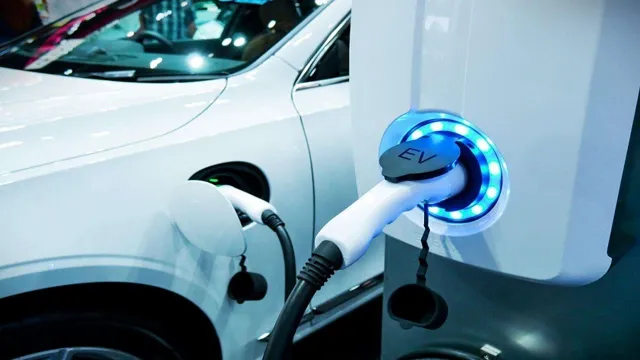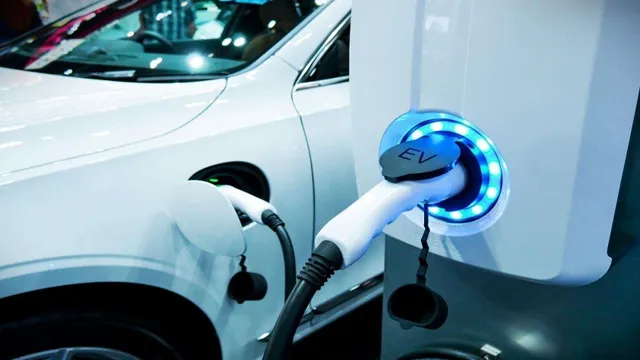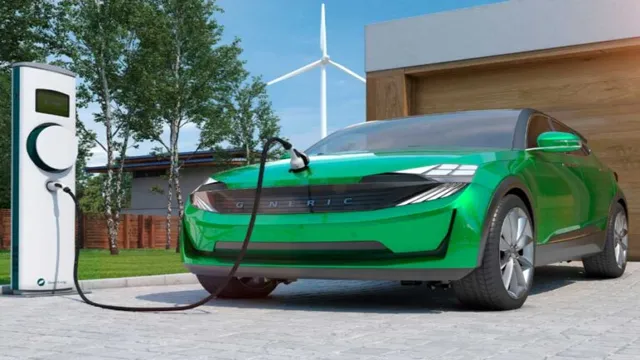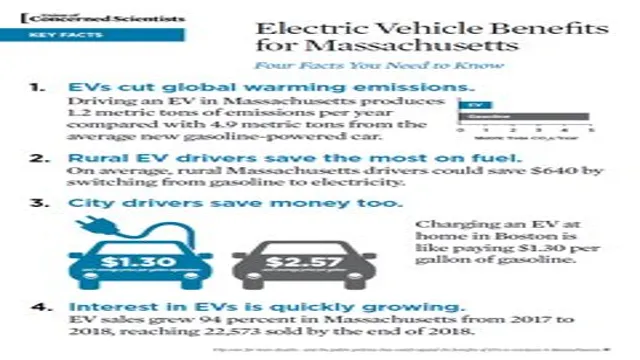Driving Towards a Greener Future: Environmental Benefits of Switching to Electric Cars
Electric cars have been around for a while now, but it’s only in recent years that they’ve become mainstream. As people become more conscious of their carbon footprint, electric vehicles have become an attractive option for those looking to reduce their environmental impact. However, aside from being more environmentally friendly, what are the eco benefits of electric cars? When it comes to reducing greenhouse gas emissions, electric cars are a game-changer.
Unlike traditional cars that run on petrol or diesel, electric vehicles run on electricity, which means they produce zero emissions. This not only helps to reduce local air pollution, but it also helps to lower the carbon footprint of the transportation sector. In addition to their zero-emissions, electric cars are also more energy-efficient.
This means that they use less energy to travel a certain distance than traditional cars. The efficiency is due to the way electric cars convert energy into motion through the use of an electric motor, which is significantly more efficient than an internal combustion engine. Another benefit of electric cars is that they can contribute to the transition to renewable energy sources.
As more people switch to electric vehicles, the demand for renewable energy sources such as wind and solar power will increase. This will help to reduce our reliance on non-renewable sources of energy, such as oil and gas. In summary, electric cars offer a range of eco benefits.
Not only do they produce zero emissions and are more energy-efficient, but they can also contribute to the transition to renewable energy sources. It’s clear that electric cars are not just a passing fad, but rather a crucial part of building a sustainable future. So why not join the electric car revolution and make a positive impact on the environment?
Reducing carbon emissions
Electric cars are becoming increasingly popular due to their environmental benefits, particularly in the reduction of carbon emissions. Compared to gasoline-powered vehicles, electric cars emit significantly fewer carbon emissions during operation, helping to reduce air pollution and combat climate change. Electric cars are also more energy-efficient, with the ability to convert up to 60% of their stored energy into driving power.
This increased efficiency means that less energy is needed to operate the vehicle, reducing the overall carbon footprint. Additionally, as renewable energy sources become more prevalent, the environmental benefits of electric cars will only continue to grow. Transitioning to electric vehicles is a critical step in the fight against climate change, and the environmental benefits of electric cars make them a smart choice for consumers looking to reduce their impact on the planet.
Electric cars emit less CO2 than gas-powered cars
Electric cars are becoming increasingly popular due to their numerous benefits, including reduced emissions of carbon dioxide (CO2). The transition to electric cars can play a significant role in reducing the amount of greenhouse gases emitted into the atmosphere, which contributes to global warming. Gas-powered cars are responsible for a large portion of total CO2 emissions, and electric cars are seen as a promising solution to this issue.
They emit much less CO2 compared to gas-powered cars, and the amount of emissions produced depends on where the electricity used to charge them comes from. In regions with a high share of renewable energy sources, such as solar and wind power, electric cars emit close to zero greenhouse gases. Switching to an electric car is a great way to reduce your carbon footprint and help combat climate change.
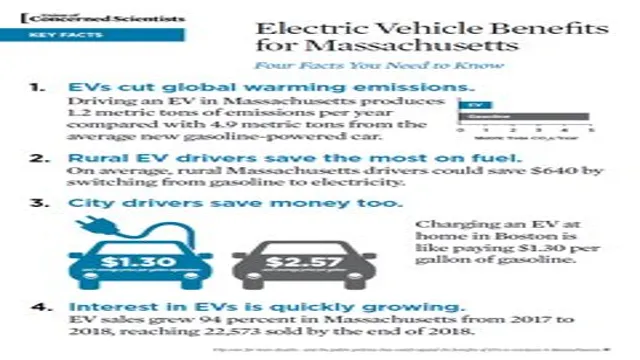
Electricity sources can be renewable, further reducing emissions
Reducing carbon emissions through the use of renewable energy is becoming increasingly popular. One of the most significant benefits of renewable energy is that it can be consistently replenished without depleting natural resources. Unlike fossil fuels, renewable energy sources such as solar, wind, and hydropower have no carbon footprint.
This means that they do not emit greenhouse gases like carbon dioxide, which is one of the key contributors to climate change. Additionally, renewable energy is highly efficient, cost-effective, and can help reduce our dependence on non-renewable sources. Incorporating renewable energy into our existing electricity sources can help lower our carbon footprint and create a more sustainable future.
So, when we switch to renewable energy, we not only reduce our carbon emissions, but we also invest in a greener and cleaner world for ourselves and future generations.
Lowering air pollution
One of the most significant benefits of using electric cars is their positive impact on the environment by helping to lower air pollution levels. Transportation is one of the primary sources of air pollution, and traditional gas-powered vehicles release significant amounts of harmful greenhouse gases into the atmosphere. Electric cars, on the other hand, produce zero emissions and are powered by electricity, which can be generated from renewable energy sources such as wind, solar or hydroelectric power.
Therefore, the use of electric cars can significantly reduce air pollution and improve the air quality in cities. Apart from reducing air pollution, electric vehicles are also generally quieter and more efficient, making them an excellent choice for environmentally-conscious drivers. With the continued growth and development of electric cars, our dependence on fossil fuels and their associated environmental risks will continue to decline, leading to a cleaner and more sustainable future.
Zero tailpipe emissions mean cleaner air for everyone
Lowering air pollution Zero tailpipe emissions are a game-changer when it comes to air pollution. With cleaner air, people can breathe easier, especially those with respiratory conditions. It also means that we can reduce greenhouse gas emissions, which is critical in the fight against climate change.
Imagine living in a world where you can walk outside and breathe in fresh, clean air without the fear of damaging your lungs. That’s a world we can create with more zero-emission vehicles on our roads. By reducing our reliance on fossil fuels, we’re taking a step in the right direction towards a cleaner, healthier planet.
Let’s continue to push for greener solutions that put the health of our planet and its inhabitants first.
Electric cars reduce smog and particulate pollution in cities
Electric cars are a great way to reduce air pollution, particularly in cities where smog and particulate matter can cause serious health problems. By reducing the amount of fossil fuels burned to power vehicles, electric cars help to significantly lower emissions of harmful pollutants into the atmosphere. This means that people living in areas with high levels of air pollution can breathe easier and enjoy a cleaner, fresher environment.
Plus, electric cars are much quieter than traditional cars, which also helps to improve overall air quality and reduce noise pollution. With more and more people making the switch to electric cars, we can look forward to a future where our cities are cleaner, healthier, and more sustainable.
Saving energy and resources
Electric cars have numerous environmental benefits that make them more sustainable than conventional gasoline-powered vehicles. Firstly, electric cars produce zero emissions, which means they don’t release carbon dioxide or other greenhouse gases into the atmosphere when charging or driving. This reduces the carbon footprint of the driver and helps to combat climate change.
Additionally, electric cars reduce our reliance on fossil fuels, which are finite and non-renewable resources. By shifting to electric cars, we reduce our dependence on oil, gas, and coal, which also helps reduce air pollution and improves air quality in cities. Furthermore, electric cars can be powered by renewable energy sources, such as wind or solar power, which reduces the amount of energy used and the overall cost of running the vehicle.
In summary, choosing an electric car has a positive impact on our environment and can help us save energy and resources while still enjoying the convenience of personal transportation.
Electric cars are more energy-efficient than gas-powered cars
When it comes to energy efficiency, electric cars are the clear winner over gas-powered vehicles. Not only do they create less pollution, but they also require less energy to operate. This is because electric cars use batteries to power their electric motors, which are far more efficient than the internal combustion engines found in gas cars.
Additionally, electric cars can recapture energy through regenerative braking, meaning they can recharge their batteries while driving. Comparatively, gas-powered cars lose energy through heat and friction, wasting resources. All in all, choosing an electric car means making a conscious effort to save energy and reduce your carbon footprint.
By making the switch, you’ll not only be helping the environment, but you’ll also have a better driving experience, since electric cars tend to be quieter and smoother than their gas counterparts. So why not make the transition and join the ranks of energy-conscious drivers?
Electricity can be generated locally, reducing transportation energy needs
Generating electricity locally is the key to saving energy and resources. When electricity is generated locally, it reduces the amount of transportation needed to move the energy to different places. This means that we can save on energy and resources by reducing the energy used to transport electricity from one place to another.
It’s like having your own little power station right at home. By using solar panels, wind turbines or other renewable sources, you can generate electricity locally and reduce your dependence on the grid. This not only helps to reduce your energy bills but also helps to reduce your carbon footprint.
So, why not consider generating your own electricity today? It’s an easy way to save energy and resources while doing your bit for the environment.
Government incentives and policies
When considering the environmental benefits of using electric cars, it’s important to also recognize the impact of government incentives and policies. Governments around the world have been implementing various measures to promote the adoption of electric vehicles, such as tax incentives, rebates or subsidies, and favorable regulations. These policies not only make EVs more affordable for consumers but also encourage the shift towards a greener society.
Additionally, investing in charging infrastructure and creating designated EV parking spots can further incentivize individuals to choose EVs over traditional gasoline-powered cars. As a result, the environmental benefits of electric cars extend beyond just their zero-emissions operation, but also include the ripple effects of supportive policies and infrastructure.
Many countries offer financial incentives for purchasing electric cars
As the world moves towards sustainable energy solutions, many governments have come forward to incentivize electric vehicle purchases. Financial incentives and policies such as tax rebates, discounts, and subsidies have made it easier and more affordable for people to transition from traditional vehicles to electric cars. In countries like Norway, buyers of electric cars enjoy exemption from taxes and tolls, while in the United States, purchasers can claim federal tax credits up to $7,500.
Other countries such as China, the UK, and Germany have also rolled out similar schemes to boost their electric vehicle industry and curb greenhouse gas emissions. However, the incentives and policies vary from one country to another, and sometimes they may come with restrictions and limitations. It’s important to do your research on the available incentives and policies before deciding to purchase an electric car.
Ultimately, these measures are essential in motivating more drivers to embrace electric vehicles, contributing towards a greener and more sustainable future.
Governments can set emission standards to encourage electric car use
One effective way to encourage the use of electric cars is through government incentives and policies. One such policy could be setting emission standards that promote electric car use. By implementing such standards, the government can encourage car manufacturers to produce more electric cars and make them more affordable for consumers.
This, in turn, would reduce the production and use of gas-powered cars, which are major contributors to carbon emissions and pollution. Additionally, the government could offer tax credits or rebates for purchasing electric cars, further incentivizing individuals to make the switch. By promoting electrical cars in these ways, governments can play a crucial role in addressing the climate crisis and creating a cleaner, more sustainable future for our planet.
So, next time you see a billboard or ad promoting electric cars or hear about a new government policy supporting them, remember that you can make a positive impact on the environment by choosing electric over gas-powered cars.
Conclusion
In conclusion, the environmental benefits of using electric cars are immeasurable. With zero emissions, silent operation, and increasing efficiency, they are paving the way to a brighter and cleaner future. Not only do they reduce air pollution and mitigate the effects of climate change, but they also promote energy independence and reduce our reliance on fossil fuels.
So, hop on board the electric movement and let’s commute towards an eco-friendlier tomorrow!”
FAQs
What are some of the environmental benefits of using electric cars?
Electric cars produce zero emissions and thus have less impact on air pollution and climate change compared to traditional gasoline-powered cars.
Do electric cars require less maintenance than traditional cars?
Yes, electric cars have fewer moving parts than traditional cars, which means they typically require less maintenance and have lower long-term operating costs.
How long does it take to charge an electric car?
The time it takes to charge an electric car can vary depending on the make and model of the car, as well as the charging station being used. However, on average it can take anywhere from 30 minutes to 12 hours to fully charge an electric car.
Are electric cars more expensive than traditional cars?
While electric cars can have a higher upfront cost, they often have lower long-term operating costs due to their lower maintenance and fuel costs. Additionally, there are often government incentives and tax credits available to help offset the higher initial cost.

